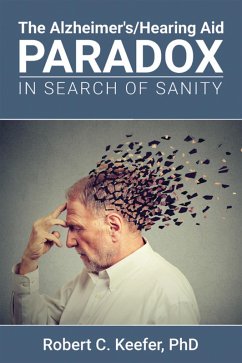
The Provision of Care (International Edition) (eBook, ePUB)

PAYBACK Punkte
0 °P sammeln!
Ontario is in the midst of a mental health crisis. 48% of Ontario high school students have shown moderate to severe psychological distress in 2015, and this rate has only been exacerbated by the COVID-19 pandemic, increasing at least 1.44 times pre-pandemic levels. Despite an increase in dialogue surrounding mental illness, the application of healthcare policies to support individuals who face barriers to wellness is limited and negative impacts persist. In this report, we propose six policies to significantly reduce mental illness, specifically targeted towards students, among whom rates are...
Ontario is in the midst of a mental health crisis. 48% of Ontario high school students have shown moderate to severe psychological distress in 2015, and this rate has only been exacerbated by the COVID-19 pandemic, increasing at least 1.44 times pre-pandemic levels. Despite an increase in dialogue surrounding mental illness, the application of healthcare policies to support individuals who face barriers to wellness is limited and negative impacts persist. In this report, we propose six policies to significantly reduce mental illness, specifically targeted towards students, among whom rates are highest. This report determines the need, cost, savings and other considerations for the identified reforms;
We found that the implementation of policies under certain circumstances, including gradual expansion over the course of 5 years, could not only reduce rates of crime, addiction rates, suicide, and anxiety and depression, but would be cash flow positive within just 7 years of programming, the proof for which is examined in this report. After analyzing all the individual costs associated with policy mandates and the budgetary savings relating to defunding redundant programming, reduced need for unemployment benefits, and reduced need for correctional spending, we suggest that the Government of Ontario take immediate action to protect students' and citizens' mental health, as it seems to provide both a social and an economic benefit (not counting the many additional benefits from non-budgetary considerations).
- Providing all students access to at least 26 sessions of Cognitive/Dialectical Behavioural or Psychodynamic Therapy annually;
- Providing 1 annual mental health check-in provided by a registered therapist to every student;
- Legally prohibiting the discrimination of an individual for the purposes of employment, social opportunities or registration in schooling due to previous efforts to access mental healthcare of any form;
- Adding a full section of the elementary/middle school health curriculum dedicated solely to the topic of understanding mental health, illness and neurodiversity to reduce stigma and create awareness of supports;
- Developing and enforcing training for peace officers, teachers and healthcare professionals in cooperation with mental health experts to teach how to identify mental illness, those at risk of mental illness and how to effectively help citizens overcome barriers to mental wellness;
- Mandating professional mental healthcare workers take and succeed in training for culturally responsive summary.
We found that the implementation of policies under certain circumstances, including gradual expansion over the course of 5 years, could not only reduce rates of crime, addiction rates, suicide, and anxiety and depression, but would be cash flow positive within just 7 years of programming, the proof for which is examined in this report. After analyzing all the individual costs associated with policy mandates and the budgetary savings relating to defunding redundant programming, reduced need for unemployment benefits, and reduced need for correctional spending, we suggest that the Government of Ontario take immediate action to protect students' and citizens' mental health, as it seems to provide both a social and an economic benefit (not counting the many additional benefits from non-budgetary considerations).
Dieser Download kann aus rechtlichen Gründen nur mit Rechnungsadresse in A, B, CY, CZ, D, DK, EW, E, FIN, F, GR, H, IRL, I, LT, L, LR, M, NL, PL, P, R, S, SLO, SK ausgeliefert werden.













